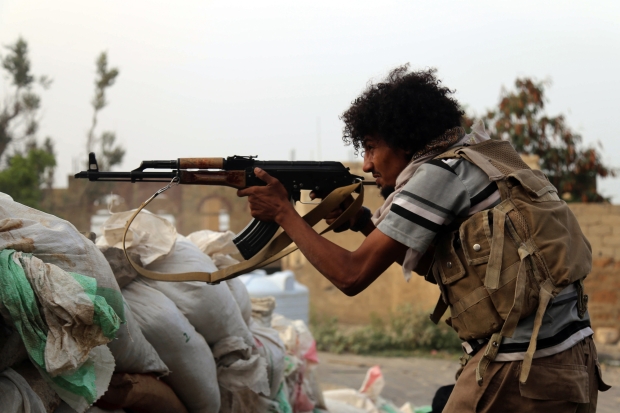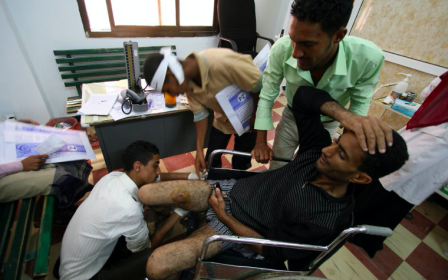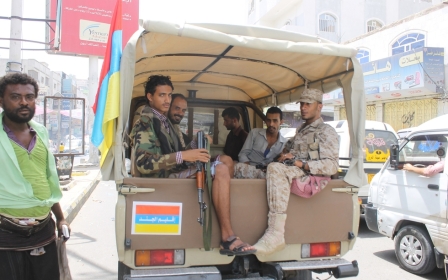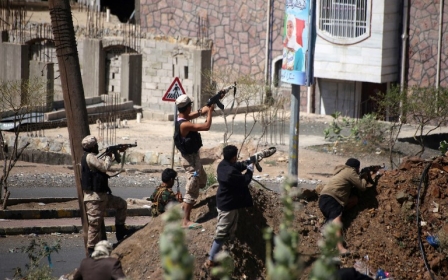Yemeni forces inch towards breaking Houthi siege of Taiz
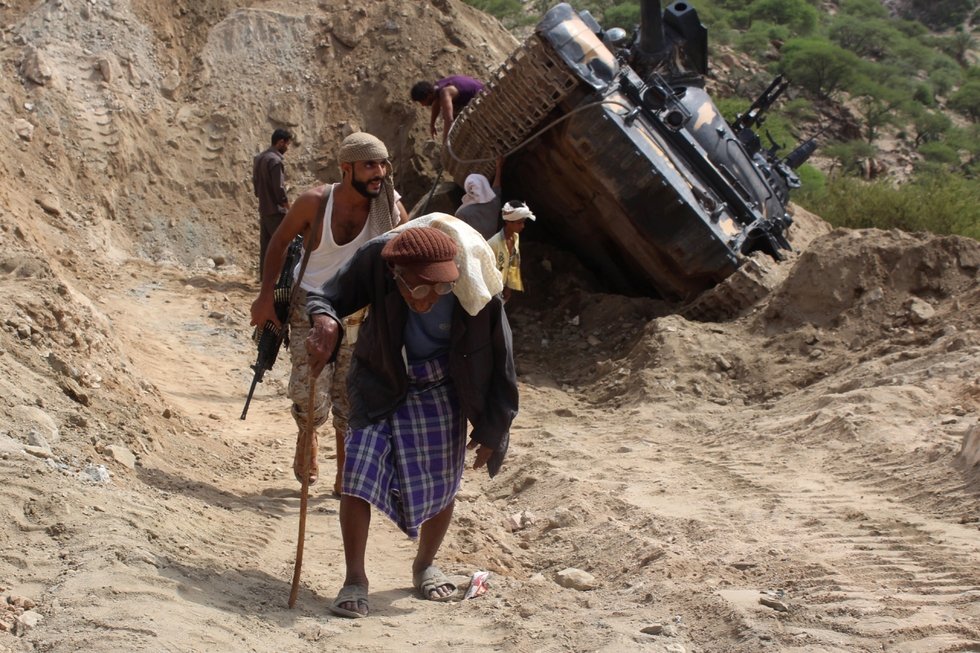
TAIZ, Yemen - Deadly clashes raged on Monday between Houthi forces and Yemeni government forces battling to secure an entrance to the besieged city of Taiz, military sources said.
Backed by a Saudi-led Arab coalition, Yemeni troops launched an offensive last week to break the rebel siege on Yemen's flashpoint third city, in the country's southwest.
The heaviest fighting Monday was near its western entrance where air strikes by the Arab coalition and ground battles left 11 dead among Houthi rebels and their allies, loyalist military sources said.
An air raid killed two more rebels at the northern entrance to Taiz, which has been encircled for more than year, the sources said.
"The blockade of Taiz is almost broken after the retaking of Jabal al-Dhabab mountain" said Colonel Abdulaziz al-Majidi, a spokesman of pro-government forces in the area.
New MEE newsletter: Jerusalem Dispatch
Sign up to get the latest insights and analysis on Israel-Palestine, alongside Turkey Unpacked and other MEE newsletters
"The road is now open between the west of Taiz and southern provinces," he said, adding however that he was referring to a "rugged" route and not the main road.
The main road linking Taiz to the south is still under Houthi control.
The AFP news agency could not confirm the toll from independent sources and the Iran-backed rebels rarely acknowledge their losses.
A doctor in al-Thawra run-state hospital in Taiz city told MEE that dozens were killed during the last three days - most of them fighters.
Dhia al-Haq, a leader of the popular resistance in Taiz, told Middle East Eye that supplies were however now able to enter the city.
"On Sunday, the forces liberated Han Mountain from the snipers and swept the landmines from the main road in al-Dhabab area, so the cars and trucks can come and leave Taiz during the main road, as the southwest entrance became safe," he said.
He stated that pro-government forces advanced in the western, eastern, and southwestern fronts, and were aiming to liberate the whole province from the Houthis.
The fighting has killed and injured scores of civilians.
Murad Taha, 58, a resident of al-Moroor Street in Taiz city who lost his son last August, said he expected more.
"When the resistance liberated al-Moroor and other areas in August last year, the Houthis targeted the civilians randomly, and they killed my son Osama, 25, while he was in the yard of the house. I do not want to see more people lose their sons," he said.
"If the resistance liberated some areas from the Houthis, they will keep targeting civilians by their shelling, so I prefer to remain under the siege until the warring sides agree on a peaceful solution."
Dhia al-Haq agreed that the escalation would only kill more, but said it was better than being held under siege.
"Instead of remaining under siege, where we lose civilians every day, the casualties will be for some weeks only," he said.
Some welcomed the attempt to lift the siege.
Nadeem Haroon, 29, who works in a small shop in al-Owadhi Street, said he had been cut off from his family 60km away in Dobaa since March .
"Before the siege, I used to visit my family every weekend, as it used to cost me 1,500 rials ($6), but during the siege it costs 10,000 rials ($40), and this is a lot for me, as I can get about 20,000 rials per week ($80). In addition, the journey takes seven hours through mountains instead of one hour," he said.
"I hope that the resistance can break the siege from the all directions and liberate the whole province, and then displaced people can return their houses and we will sell goods as before."
Middle East Eye delivers independent and unrivalled coverage and analysis of the Middle East, North Africa and beyond. To learn more about republishing this content and the associated fees, please fill out this form. More about MEE can be found here.


